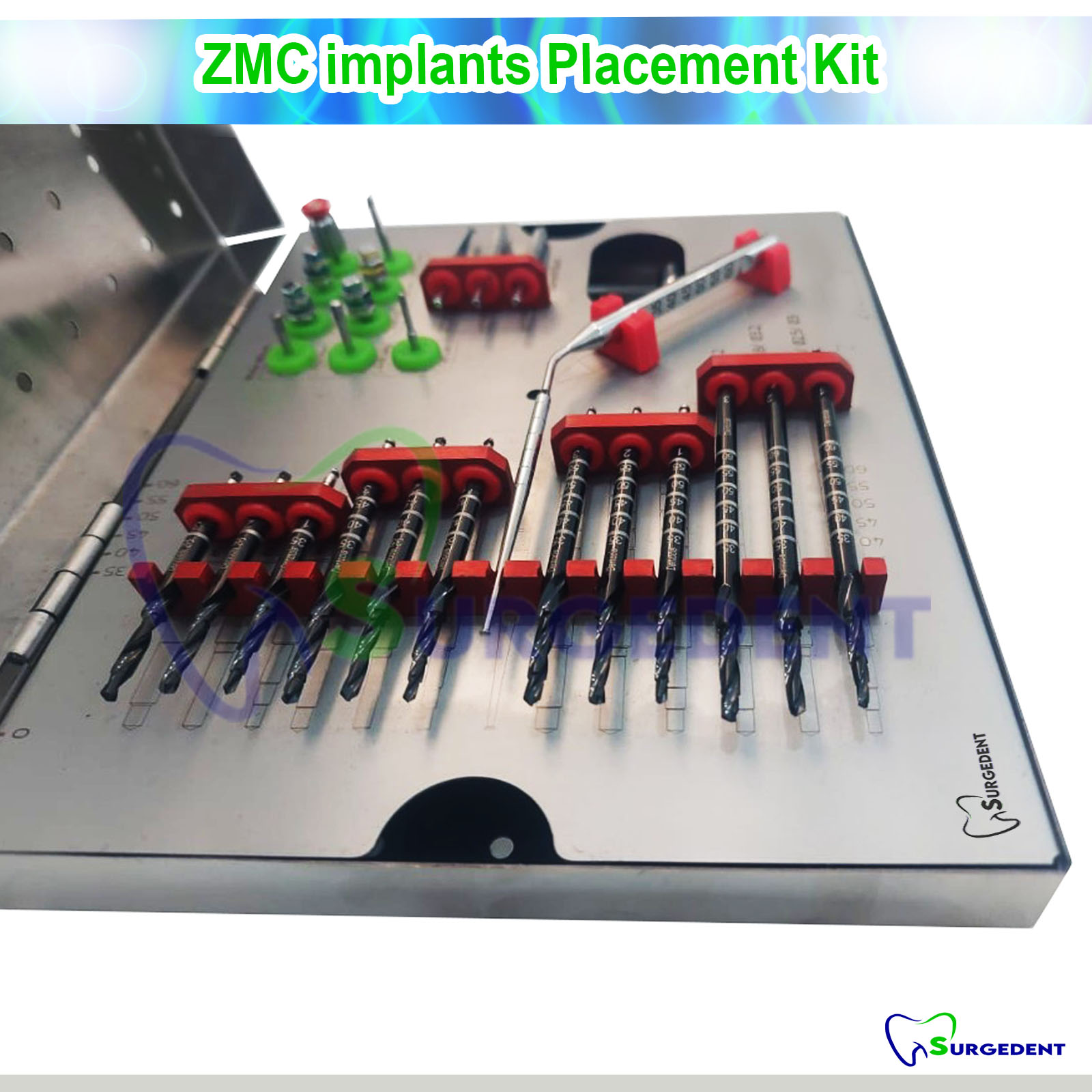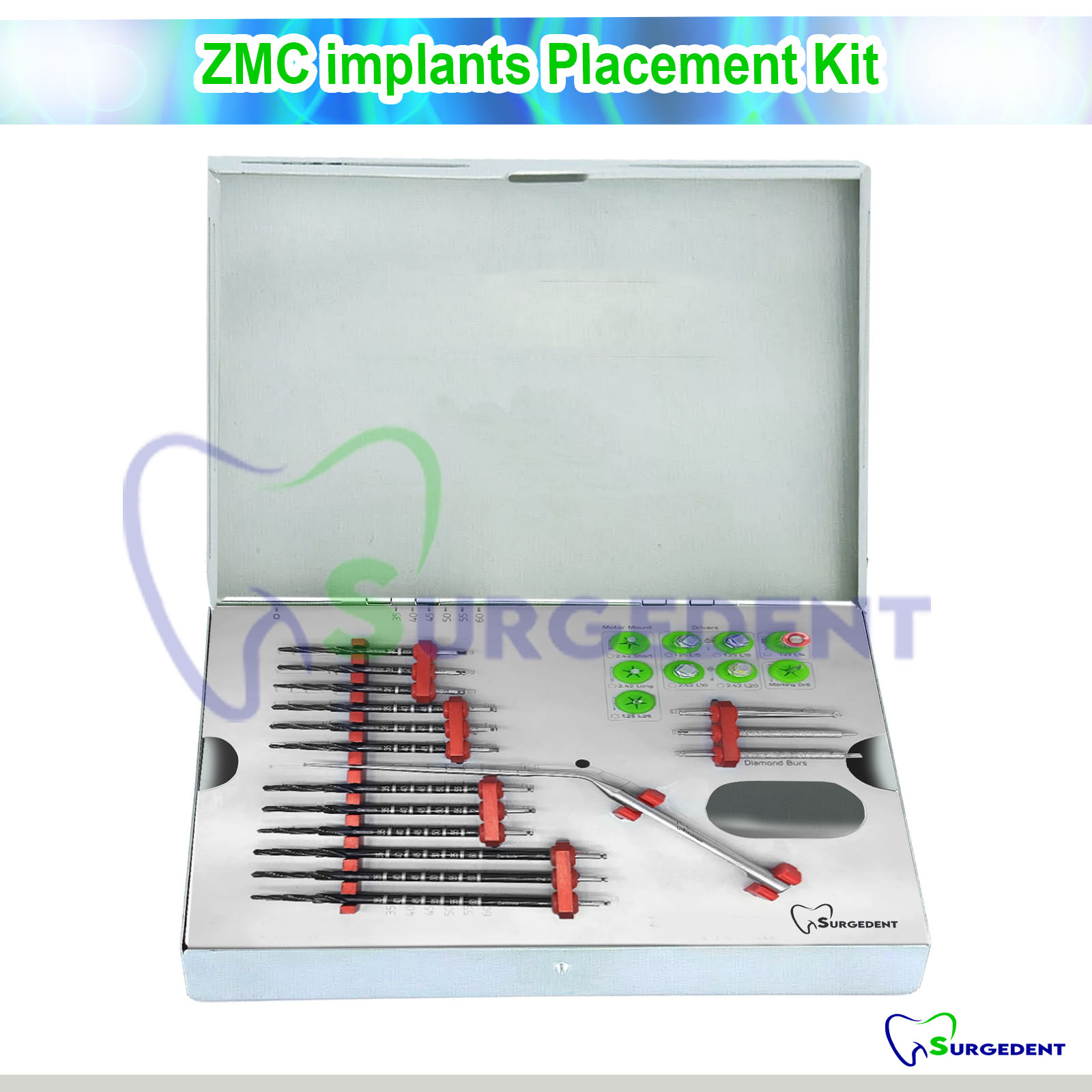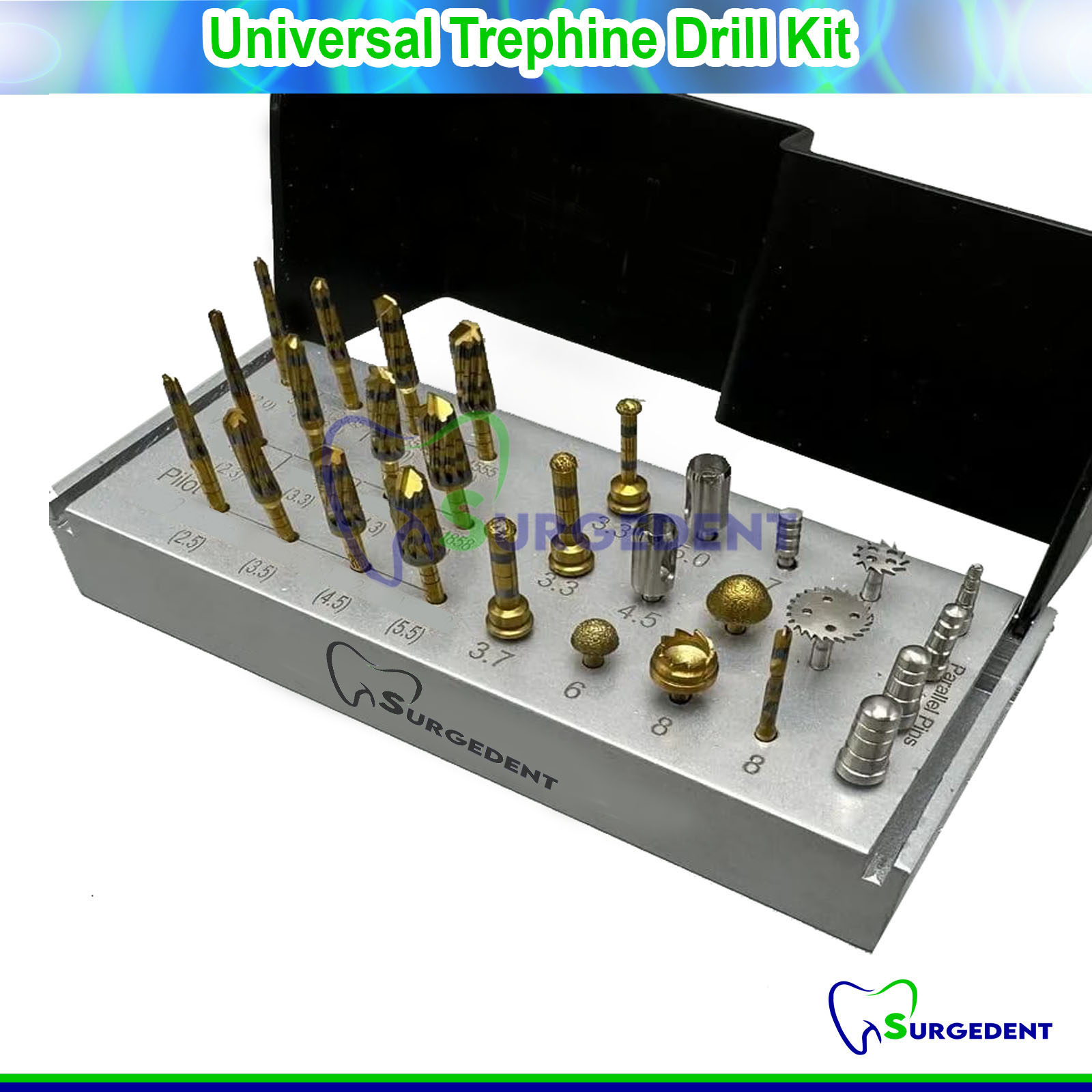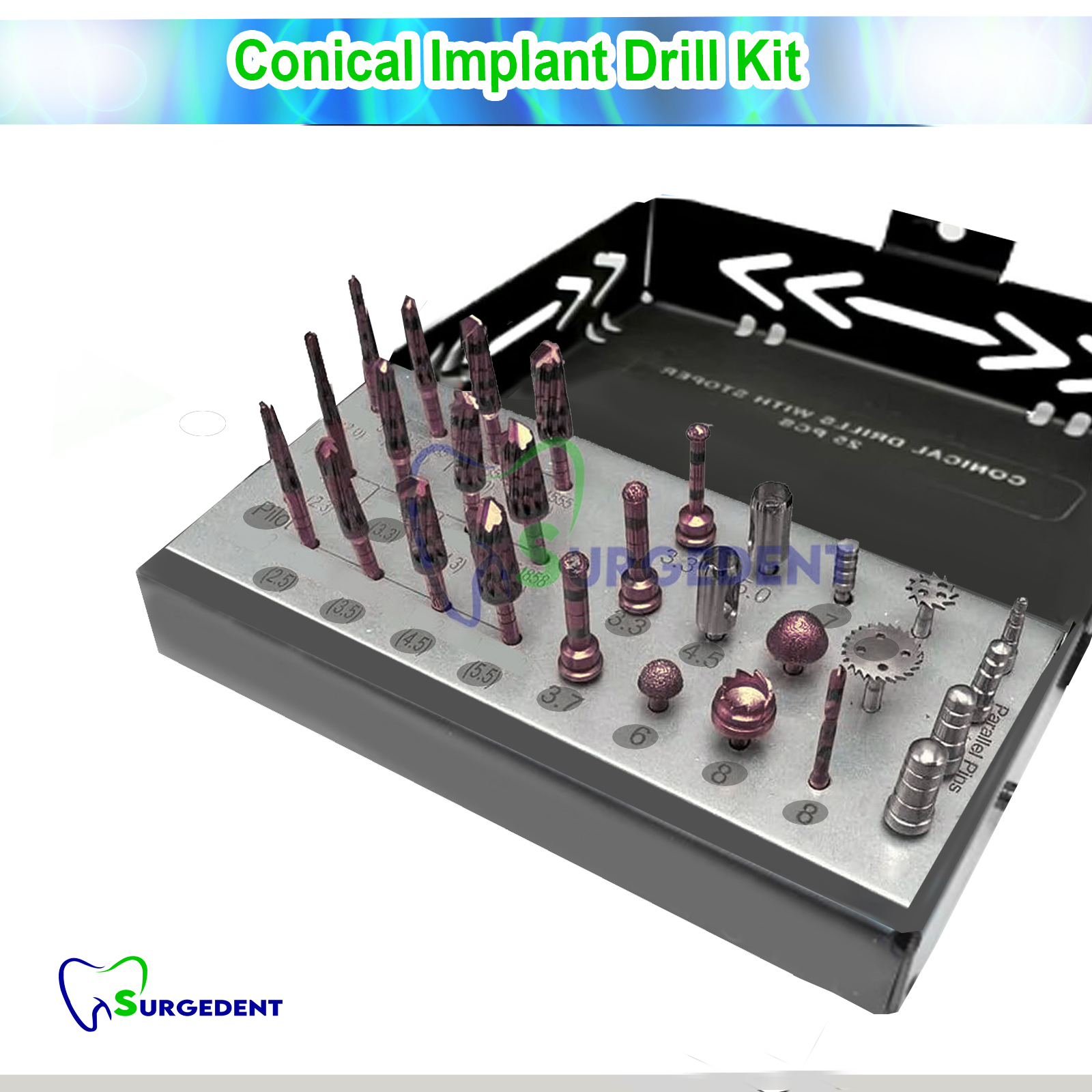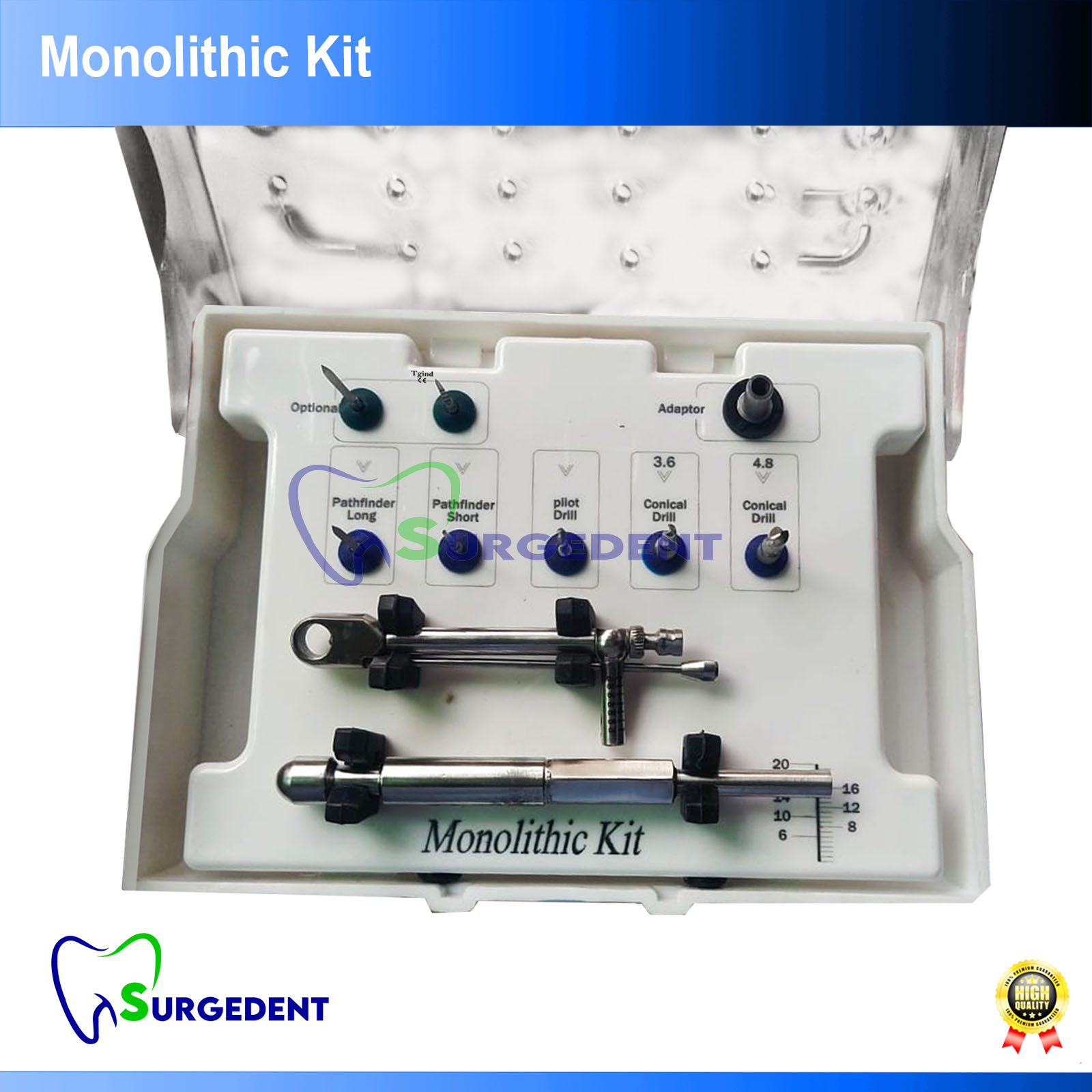
implant monolithic kit
SKU : SKU: ORTHO-MONOLITH-HIP-1234 SKU: ORTHO-MONOLITH-KNEE-5678 SKU: DENTAL-MONO-ZIRCONIA-9101 SKU: SPINE-MONO-IMPLANT-2045
Features
- Monolithic Design: The implant is made from a single
- solid piece
- which can reduce the risk of complications such as fractures or loosening compared to multi-component implants. Biocompatibility: Made from materials like titanium or zirconia that integrate well with human bone and tissue. Customizable: Some kits may offer a level of customization for the implant based on patient-specific requirements. Surgical Tools: Includes specialized instruments for precise placement and alignment of the implant. Reduced Risk of Infection: The single-piece design minimizes the potential for bacterial growth between multiple components. Preoperative Planning: Some kits include digital planning tools or templates to ensure proper fit and alignment. Durability and Strength: Designed for long-term use with materials that are resistant to wear and corrosion. Immediate Load Support: Some implants allow for immediate weight-bearing
- improving the recovery process. Minimal Invasive Techniques: The kit may be designed to support minimally invasive surgical techniques
- enhancing recovery time and reducing complications. Cost Efficiency: Monolithic designs can be more cost-effective as they eliminate the need for multiple components.
Product Details
- Unit : Piece
Orthopedic Monolithic Implant Kits About: Orthopedic monolithic implants are used for bone replacement, often in joint surgeries (such as hip or knee replacements). These implants are made from a single piece of material, offering enhanced strength and durability. Key Features: Single-Piece Design: Unlike traditional orthopedic implants that may have multiple components (e.g., a stem, ball, and cup for a hip implant), a monolithic implant is made from one continuous piece, which can reduce the risk of failure or loosening. Material Choices: Typically made from titanium, cobalt-chromium alloys, or ceramics, materials that are strong, lightweight, and biocompatible with human tissue. Osseointegration: The monolithic design supports better integration with bone, as the smooth, continuous structure facilitates stronger attachment. Simplified Surgery: Surgeons do not need to assemble or adjust multiple components during the surgery, reducing the complexity of the procedure and time in the operating room. Less Risk of Infection: Fewer components mean fewer seams or gaps where bacteria might harbor, reducing the risk of infection post-surgery. Improved Recovery: Because these implants are typically stronger and require less manipulation during surgery, patients may experience faster healing times. Applications: Hip and knee replacements Spinal implants Shoulder replacements Dental Monolithic Implant Kits About: In dental implants, a monolithic implant kit refers to dental prostheses made from a single piece of material, often used in tooth replacement procedures like implants or bridges. The goal is to provide a strong, durable, and aesthetically pleasing solution for patients needing tooth restoration. Key Features: Single-Piece Crown: The implant and crown are often made from a single piece of material (commonly zirconia or ceramic), eliminating the need for separate crown and abutment pieces. Aesthetic Excellence: Materials like zirconia are favored for their natural, tooth-like appearance, providing patients with a more aesthetically pleasing result. Strong and Durable: Monolithic materials such as zirconia offer exceptional strength and wear resistance, making them ideal for dental applications. Biocompatibility: Materials used are safe for the body, causing minimal to no irritation and supporting long-term oral health. Minimal Adjustment: Because the implant is a single piece, it reduces the chances for adjustments during or after surgery. Faster Recovery: The fewer the number of components, the quicker the recovery as the implant requires less surgical manipulation. Lower Risk of Complications: With fewer components, there's a reduced risk of complications such as loosening or failure due to component separation. Applications: Tooth implants (single or multi-tooth replacements) Full arch restorations Bridgework and crowns Abutments General Benefits of Monolithic Implant Kits Simplified Surgical Process: Both orthopedic and dental monolithic kits streamline the surgical procedure by reducing the number of components that need to be placed, making surgery faster and more efficient. Increased Strength and Stability: A monolithic design tends to offer better mechanical stability, meaning the implant is less likely to fail under stress. Reduced Infection Risk: With fewer seams and gaps in the implant structure, the risk of infection is reduced, helping improve patient outcomes. Cost Efficiency: While the initial cost may vary, the reduced need for multiple parts can sometimes make monolithic systems more affordable in the long run, especially when considering the reduced risk of revision surgeries. Patient Satisfaction: Monolithic implants are known for better longevity, more natural aesthetics (especially in dental implants), and fewer post-surgical issues, which can lead to higher patient satisfaction.
- Surgedent
- surgedent
- SIALKOT
- Near Dubai Islamic bank Shahab Pura, Sialkot, Sialkot, Punjab
- 03092191244
Submit Your Review
Please login to submit your review.

